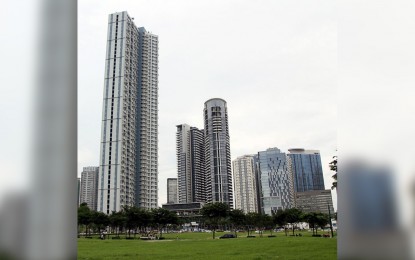
PNA file photo
MANILA – Despite the "bleak global prospects," the Philippine economy is one of fastest-growing economies in the world, President Ferdinand R. Marcos Jr. said on Monday.
"We are still considered to be among the fastest-growing economies in the Asian region and the world. It is a testament to our strong macroeconomic fundamentals," Marcos said in his second State of the Nation Address (SONA).
In 2022, the Philippine economy grew by 7.6 percent.
"While the global prospects were bleak, our economy posted a 7.6 percent growth in 2022—our highest growth rate in 46 years," he said.
For the first quarter of the year, economic growth hit 6.4 percent.
"Our financial system, the nerve center of our economy, remains strong and stable. Banks, the transmission arms of our monetary policy, have strong capital and liquidity positions," Marcos said.
The President said the further easing of quarantine restrictions and boom in e-commerce also helped spur growth.
He said the digital economy alone already contributed about PHP2 trillion or 9.4 percent of the country's gross domestic product.
"The economy is revived and rejuvenated, backstopped by a favorable enabling environment and the strong rule of law," he added.
The economy is expected to continue to post strong growth.
Marcos said the World Bank projects the Philippine economy to grow by 6 percent this year.
This is within the lower end of the government's 6 to 7 percent economic growth target for 2023.
"This is anchored on strong local demand, underpinned by consumer spending, and draws strength from the BPO (business process outsourcing) industry, steady flow of remittances, and the continuing jobs recovery," Marcos said.
He said the government is ramping up efforts to achieve the growth target.
Some of the government measures include increasing investments in public infrastructure and prioritizing education, health, jobs and social protection.
"For this year, economic and social services were allocated almost 70 percent of the national budget," he said.
Marcos said inflation is also expected to continue to ease in the coming months.
"Inflation rate is moving in the right direction. From 8.7 percent in January, our inflation has continued to ease up in all regions, settling at 5.4 percent this June," he said.
"What this means is that in spite of all the difficulties, we are transforming the economy. We are stabilizing the prices of all critical commodities."
Marcos admitted that inflation "was the biggest problem" that the administration encountered.
Headline inflation accelerated last year which Marcos attributed to the Russia-Ukraine war which caused the decline in oil production.
Citing data from the Bangko Sentral ng Pilipinas, the President, however, said inflation is now expected to further ease by the end of the year and settle at 2.9 percent by 2024.
Marcos cited the contribution of Kadiwa stores in helping Filipino people access food at cheaper prices.
He said over 1.8 million Filipino families already benefitted from Kadiwa stores which aim to connect farmers to consumers.
"Maganda ang nakita nating resulta, kaya papalawigin pa natin ang KADIWA sa buong bansa (We had good results so we will establish more KADIWA in the country)," Marcos said. (PNA)
